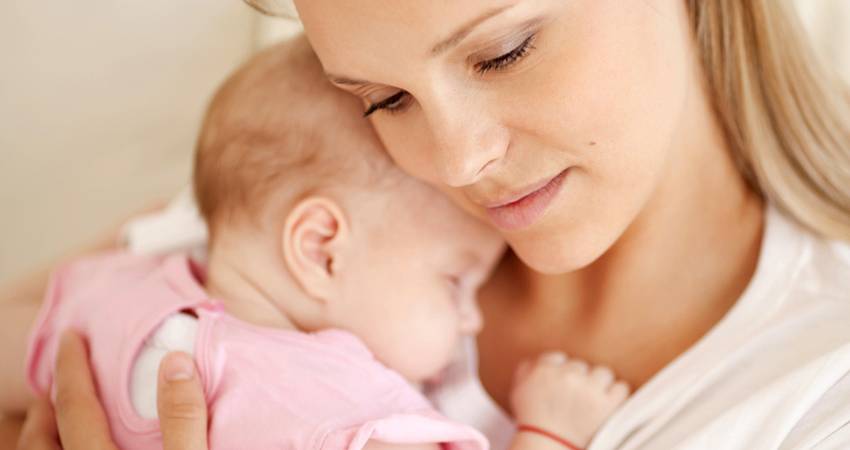
The 8th amendment reflects some of Ireland's deepest values
The Irish are a caring people; evidence of this is ample.
The surge in homelessness has touched a nerve of compassion which has led to hands-on volunteering on the night-time streets of our cities and towns.
The efforts of ordinary folk seem at times to have overtaken Government action to provide shelter and basic necessities for those with neither roof nor abode.
Cork Simon, St Vincent de Paul Society and Share are household names which have lacked neither numbers nor support for their front line service provision.
The ability to reach beyond ourselves in solidarity with those in greatest need is deeply rooted in Irish people and manifests itself in a variety of ways.
I recall the year 1984 as being something of a watershed; Ethiopia was in the grip of a severe famine, which claimed the lives of an estimated one million people.
Perhaps it was the first occasion when media coverage brought daily real time updates and images of an unfolding humanitarian crisis within reach of everyone. The response was enormous; individual donations, spontaneous collections in workplaces, fundraising and charity events of all kinds amounting to a nationwide outpouring of generosity that surpassed all expectation.
The year ended with mega sales of the single ‘Do they know it’s Christmas?’, the proceeds of which went to African Aid.
As a country, we also feel a strong sense of outrage for wrongs wrought on the vulnerable. There is agreement that a line is crossed when it comes to sexual exploitation, harsh treatment of orphans, neglect of the elderly, or abusive domestic environments.
For nearly two decades we have been involved in a national conversation – at times a very sad one – on how children have been treated in institutions and other non-family settings.
All of this sits at variance with another national conversation, or rather a crusade, aimed at introducing or extending abortion to a society which has managed very well without it.
Strangely, there is an overlap of proponents in both conversations as some of the harshest critics of the institutions are proving the most vocal in calling for abortion.
For some, there is no anomaly in being defenders of innocent children; while advocating abortion to be available in cases of severe disability, or for those conceived through rape or other unfortunate circumstance.
A year before the extraordinary response to the Ethiopian famine, the Irish people, in 1983, passed an amendment to our Constitution to protect the unborn. It was the same desire not to be wanting in the defence of the most vulnerable that was at the heart of both initiatives. Consensus existed that abortion was the supreme offence against the rights of the unborn child.
What exactly were the risks that the 1983 amendment – the eighth to our Constitution – sought to protect against?
One was judicial activism, as had happened ten years previously in the United States, where the Supreme Court decision in Roe V Wade effectively forced legal abortion on every US state.
Leaving the matter to be decided by politicians only didn’t seem a particularly good idea either and given the current political climate as well as the X Case of our own Supreme Court, the wisdom of the Eighth Amendment has been validated on both of these scores.
The life affirmation which was and is the Eight Amendment is not an isolated policy of the Irish. Life is seamless and so is respect for life.
When given the opportunity, we voted to prohibit capital punishment (in 2001) although nearly a half century had passed since any execution has taken place.
We keep out of wars with a closely guarded neutrality. Our army has won the highest accolades, not as combatants but as peace keepers, helping to prevent civilian and even military casualties in places of hostility.
Disability rights, better educational access for those in poorer circumstances and many more of our present positives were won only after long efforts.
The push, powerful but not by no means unstoppable, to remove the protection of the Constitution from some or all categories of unborn children is the greatest threat to our historic sense of values and to our over-riding compassion.
The issue of abortion touches on morality and beliefs in a profound way and no debate on the subject in Ireland can leave out religious conviction.
There are those who hope that churches, especially the Catholic Church, will stay silent. Not going to happen.
Catholicism, and Christianity in general, has a long history of confronting pro-death cultures. Its most winning argument against abortion is that the God which it proclaims became human and in doing so, gave our nature an immortal value.
Pope Francis has said: “It is frightful even to think that there are children, victims of abortion, who will never see the light of day.”
Let nobody expect that the Church which prays in the words “blessed is the fruit of thy womb” will remain aloof from Ireland’s debate on unborn life; on the contrary, it is likely to play a significant role.
This first appeared in the Cork Independent and is printed with permission here
Featured
- Calls for inquiry: 108 babies born alive then die after abortion
- Britain: Assisted Suicide Bill ‘will almost certainly fail’
- Every Life Counts: sending love and care for sick babies
- "A step backwards": Jersey has legalised Assisted Suicide
- 8,000 babies saved by Abortion Pill Reversal
- Spain Moves To Restrict Pro-Life Protests Near Abortion Clinics
- Mediums and abortion: a dangerous narrative
- Man jailed for 9 years for forced abortion
- Abortion coercion has arrived in Ireland – the NWC are silent
- Review of at-home abortions 'needed after coercion case'
- French Govt to remind 29-year-olds of biological clock
- Rally for Life 2025




























